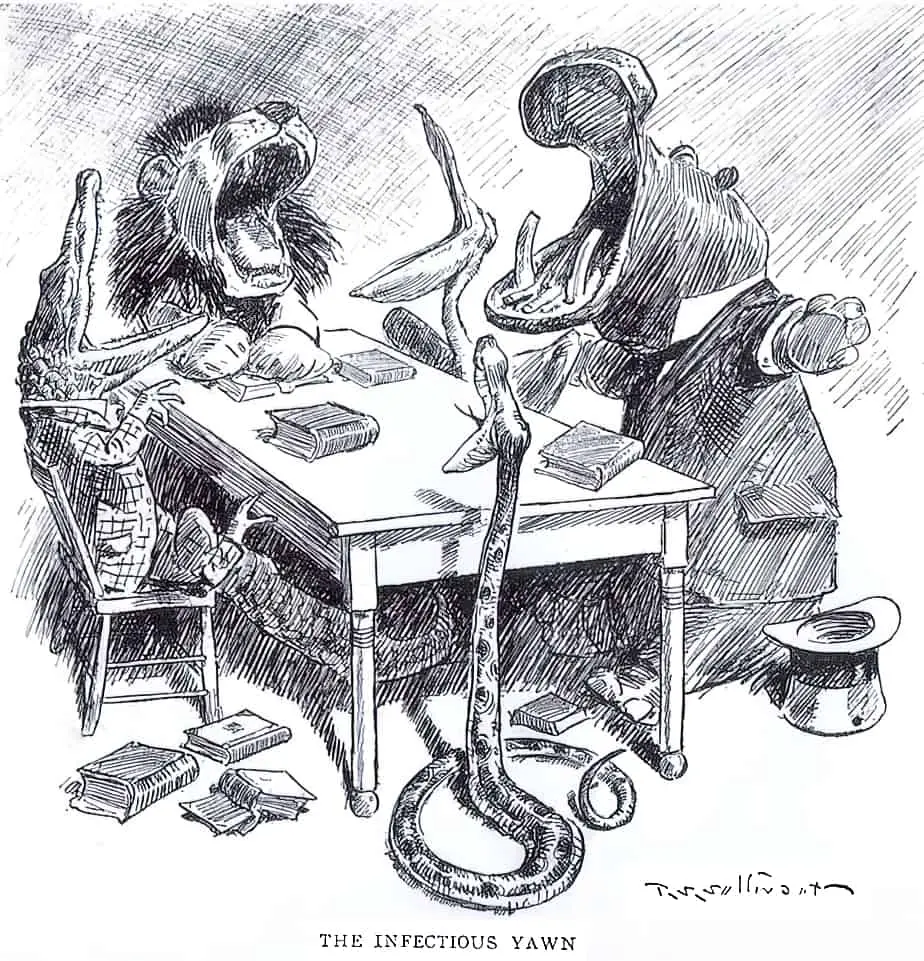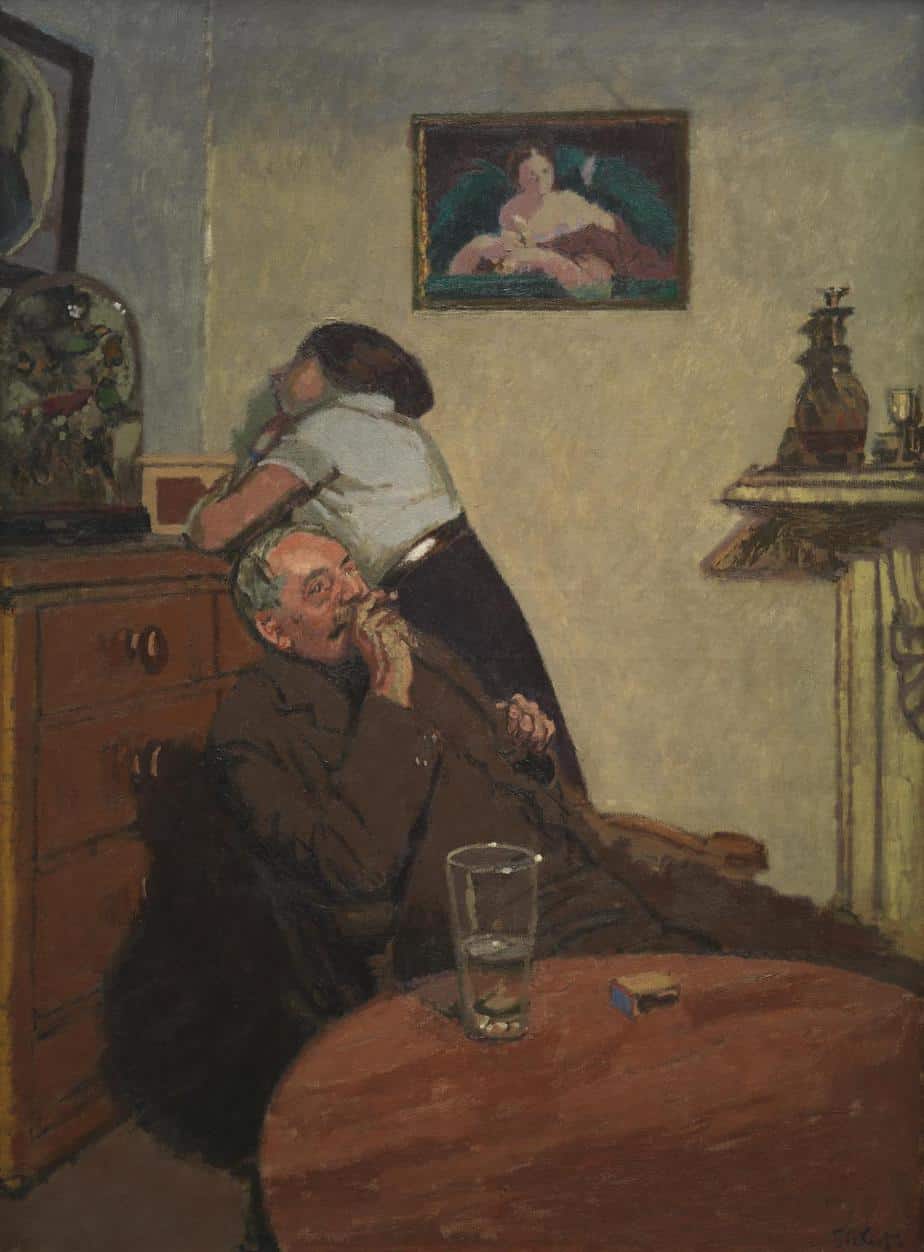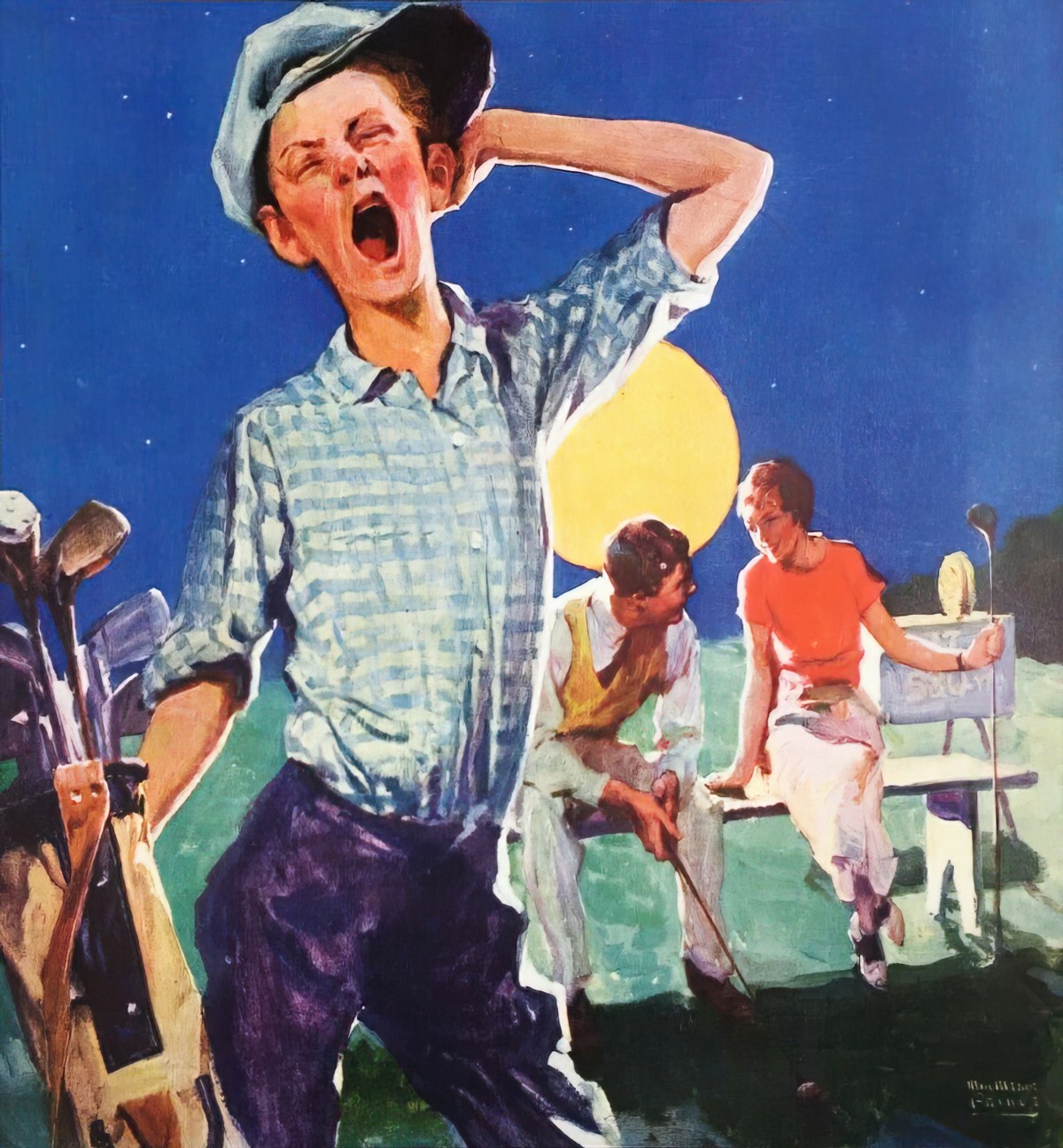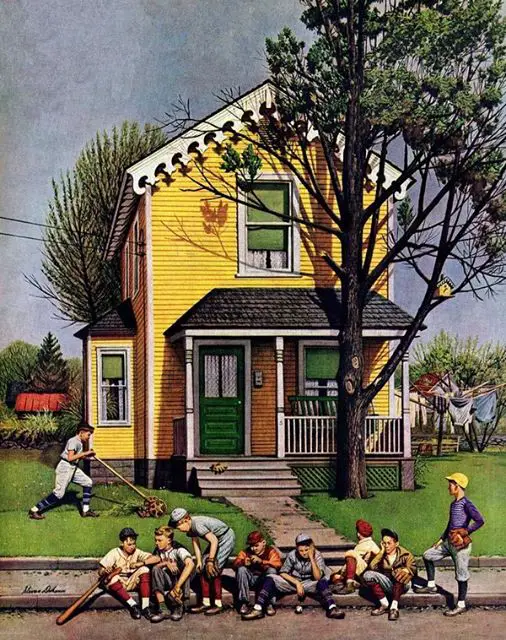BOREDOM AND YAWNING

When I was a beginning teacher, part of my mentorship required visits to the classrooms of older, career teachers in order to pick up tips, and also (presumably) to hone my own teaching persona by applying my own critical faculties to the teaching practices of others.
One formidable teacher managed her classes by developing a particularly fearsome persona. First, she would turn up at least a quarter hour late to each class, which would impress upon everybody how important her own time was in relation to that of everyone else. She would make sure to arrive puffing. I never saw her enter a room without puffing and panting.
Second, she would routinely plonk her backside upon the desks of various students, even if it meant sitting upon their books and stationery. (I wonder if anyone was tempted to come to class armed with thumb tacks.)
Most of all, this teacher was manic-vigilant, pouncing upon any student staring out the window or fiddling with their pen. One day when I was in attendance, a student made the grave mistake of yawning unself-consciously. It wasn’t a loud yawn, and the hapless girl wasn’t even making a statement. But the teacher decided to take this as a grave personal insult, interpreting a yawn as only one emotion: boredom, and boredom not just with the subject matter but with the teacher herself. The girl got into a lot of strife for daring to yawn.
I think of this incident whenever our Border collie yawns, because the funny thing about many dogs is that dogs yawn not out of boredom but due to excitement. “Walk!” I’ll say enthusiastically, and this will have him trotting to the door, stretching his front legs and yawning uncontrollably. He shakes his head afterwards. You may have seen dogs do it. This sort of yawn is not due to someone sitting at the front of a classroom droning on about spelling rules.
Humans are not dogs, but I’m sure this mammalian reflex indicates something slightly more complicated than one hundred percent boredom. In fact, we should never assume to know too much from a person’s body language, even if the likes of Alan Pease would like to consider everything in binaries and absolutes.
In some contexts, yawning simply means ‘gaping’ or ‘open wide’.


- What A Yawn Says About Your Relationship from Scientific American
- Really? Yawning Is Contagious Between Dogs and Their Owners from NYT
- Here’s Steve Jones talking on Radio New Zealand about the science of yawning: AKA chasmology.
- Why We Yawn from The Dish


THE COLOURS OF BOREDOM
Boxcar administrative buildings, dull government workers in identical gray suits, military officials with matching buzz cuts-this was all I ever saw. Even the housewives wore the same dresses and blouses, never deviating from their neutral tones of beige, black, and pale blue. Uniformity engulfed the city, smoothed its rough patches, varnished it to a perfect sheen. With every restaurant serving the same three dishes, the movie theater only showing two movies at a time, and the norebangs updating their music catalogues once a year, I had little trouble focusing on my studies. Unimpeachable grades and a top score on the CSAT were the two goals that saved me from boredom.
I yearned for a place with grit and edge, a place with a pulse, something boiling beneath the surface. And I was almost there. I could feel it in my aching fingertips as I scribbled class notes. I could taste it in the cheap curry donkatsu I scarfed down between day and night classes. In three weeks, I’d take the exam and be set on my track, hurtling toward that magnificent megacity, overflowing with chaos and life. It was all I ever talked about with my friends: Seoul. Home to ambitious students, aspiring artists, high fashion models, and brilliant CEOs, it was everything we didn’t have, everything we craved. I’d been to Seoul twice with my parents. We’d toured the palaces and seen the sights. I remember being astounded by the sea of pedestrians emerging from the metro, the cacophony of blaring horns during rush hour. There was an energy, a marvelous desperation to the way these people lived their lives. From then on, I knew I had to come back. And as I sat in the dingy classroom of my hagwon, going over one multiple-choice question after another, it took all my self-restraint and focus to sit and study. I was so close. So close to getting out, leaving it all behind.
from the novel When We Fell Apart by Soon Wiley.
FURTHER READING
Books about Boredom from the University of Miami Picturebook Database
Header illustration: “Baseball Player Mowing the Lawn,” Stevan Dohanos, Saturday Evening Post, July 20, 1946.

